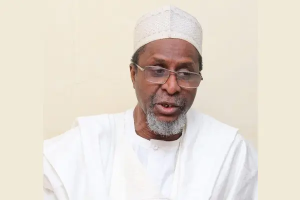Nigeria is ranked among the countries that are most vulnerable to climate change impacts according to multiple reports and indices. With an estimated population of 230 million people inhabiting 923,769 square kilometres, it is impossible to address Nigeria’s climate change challenges from a single central government. This presents an opportunity for multilevel approaches whilst aggregated subnational climate change action becomes imperative.

Indeed, the visible gaps between federal-level climate action and subnational climate action hugely impacts on Nigeria’s efforts at addressing climate change. While there are several policies at the federal level, the impacts of these policies are not been felt across the country due to the disconnect between the national actions and the subnational. This failure at holistic action is a nagging problem which underscores the importance of subnational action in complementing the national actions.
As a federating State, Nigeria’s governance system is structured such that efforts from the subnational must combine and feed into federal efforts, for a holistic goal towards achieving national targets. It follows then that with climate change being mostly felt at the subnational, genuine efforts at addressing climate impacts must include strategic and well-intentioned subnational actions to effectively achieve national and international goals.
By leveraging on State-level polices and action plans, Nigeria’s subnational can effectively address climate change from the community-level up, and this cannot be overemphasised. As it stands, none of Nigeria’s national climate change goals can be attained without corresponding efforts and actions by the States and Local Governments.
It is therefore imperative that urgent attention must be shifted to subnational climate change governance especially the important roles of climate change policies and action plans at the subnational levels towards the attainment of the short- and long-term climate change goals and sustainable development aspirations of the country at large. Therefore, these visible gaps created by lack of effective climate action is unacceptable and must be addressed urgently.
In essence, with differing impacts of climate change in the constituent 36 States and 774 Local Government Areas (LGAs) which make up Nigeria’s subnational; States and LGAs are better positioned to identify necessary actions, which they must undertake to address climate change within their respective geographical locations. These actions which should be adaptive in nature can then be complemented by mitigation actions which will further feed into national greenhouse gases emissions reduction plans in order to forestall future climate change impacts. One effective way of achieving this is through the development and implementation of climate change policies and action plans.
In a bold move to galvanise climate awareness and encourage greater climate action at the subnational, the Society for Planet and Prosperity (SPP) in collaboration with the Department of Climate Change, Federal Ministry of Environment, Nigeria, undertook the first-ever rating and ranking of the climate governance performance of the 36 States of Nigeria. The ranking of climate governance performance of Nigerian states was based on five themes: i) Climate change institutional arrangements and administrative structure, ii) Climate policy and action plan, iii) Climate budget and finance, iv) Climate change project Implementation and monitoring and v) Online visibility with reference to climate action.
The report identifies key climate change governance criteria, reveals a gap in subnational climate change policies and action plans amongst Nigeria States, and ultimately provides key elements for an effective climate change governance system for Nigeria’s subnational. This effort is critical to boosting climate action in the country, meeting the country’s Nationally Determined Contributions, address salient developmental issues, and ultimately drive towards Nigeria’s 2060 net zero ambitions which is hinged on green growth.
On Thursday, July 25, 2024, key stakeholders on climate change in Nigeria, ranging from State Governors, Ministers, Heads of Climate Change Councils and Departments, Environment and Climate Change Commissioners, members of the academia, civil society, community and youth groups, women and persons living with disabilities, the media, will converge on the Abuja Continental Hotel to share ideas, recognise top performers review and evaluate, for the first time, the nature of climate change governance in Nigeria’s subnational during the High-Level event. This event, once launched, becomes an annual evaluation metrics aimed at bolstering subnational actions for the good of the country.
By Nnaemeka Oruh, Senior Policy Analyst, Society for Planet and Prosperity, @_Oruhnc
